|
”For I am longing to see you so that I may share with you some spiritual gift to strengthen you— or rather so that we may be mutually encouraged by each other’s faith, both yours and mine.” Romans 1:11-12
Dear Friends, Lisa and I are happy to be together in Nepal for a week. We have each taught in Nepal in the past (Lisa in 2017, Rich in 2018 and 2019), but this is our first chance to be here together, joining the staff team of the IFES student ministry. We had planned to visit them in June 2020,but of course those plans had to be cancelled. When we first were praying about ministry in Asia, Nepal was always part of our sense of calling. We both have taught courses on-line in Nepal in the last two years, and we will both teach hybrid courses in the fall, courses which begin with a week of in-person teaching in Kathmandu. This is one of the benefits of living in Kuala Lumpur--direct flights here are quick and inexpensive. After our time in Nepal, Lisa will return to Kuala Lumpur to begin a new school term, and I will spend two weeks in India, in Orissa (May 7-14) and Punjab (May 15-21). The first week I will teach about 20 times, through the entire gospel of Mark. We will be in five locations, teaching the people of the village/town churches in 3 inductive studies over the course of each day, with a fourth study in the evening for a group of pastors and church planters that will be traveling all week with us. These pastors have been with me studying scripture weekly via Zoom for the past six months, and I am looking forward to meeting them in person! My host and translator, Pastor S, was a graduate student in a course I taught in India last July —he is a great student of the Word, teacher, and leader. His initiative has brought this week about. I am looking forward to all the teaching, but especially to deepening the teaching/training ability of the pastors who will be in the course, as they both learn from my content and my modeling of inductive methods. The second week in India I will be in Punjab state, teaching among a group of pastors and lay leaders in a church-planting network. The schedule will be similar, but a bit reduced, probably only 3 sessions/day. Still, it will ideally open up a new network of pastors to this teaching in a way that may continue via Zoom after the end of my time there. My connection to this ministry and network of Pastors in Punjab state is Pastor J, who hosted Lisa and me last August in Tamil Nadu state. He will be joining me for the week in Punjab, where his seminary friend will be hosting us. I hope to return to Tamil Nadu again later this year, perhaps after my return to Nepal in September. One theme of my investment in India is helping pastors to learn how to teach inductively by asking questions and getting groups of people to look at the word and to discuss it themselves in small and then larger groups. Pastor S in Orissa has been doing this with groups of people who are very much enjoying a new way of hearing and studying the Word of God. The pastors who will be with me for the week in Orissa will leave with several months’ worth of Bible studies they can return with to their own churches, and a model of how to lead people into discussions that will help move them past the typical experience, which is of a pastor just talking for a long time about a passage in ways that do not as easily engage the hearts and minds of the listeners. Please pray for our time in Nepal, India, and Lisa on her own in KL. We ask your prayers for health and stamina, as well as for the campus ministers and pastors we will serve. In Paul’s letter to the church in Rome, he is obviously looking forward to the teaching and ministry he can do among them, and he expresses that in 1:11, but then Paul gives us a look into his thought process, because he enlarges his thought to recognize that his time in Rome will involve mutual sharing and encouragement. This is indeed how we see our visits to Nepal and India. We are aware that in both countries, the church faces great grass roots resistance, and government suppression is on the rise, so we hope to be an encouragement to them in person as we have been praying for them at a distance. But the pastors and church in India, and the student ministry staff in Nepal, are a very real inspiration to us, as God’s promises about suffering for the Gospel are more meaningful to them than we can imagine. As we often do, we ask for prayers for our visa situation, which has not progressed in any way we can discern. Thus, we left KL with minor trepidation, since each departure adds one more uncertain attempt to enter on a new tourist visa. Thanks so much for your interest in our ministry, your prayers and your support! We are grateful to be able to be fully investing in our work here. Please drop us a note if you are able! We love to hear from you! Rich and Lisa
0 Comments
“One day Peter and John were going up to the temple at the hour of prayer, at three o’clock in the afternoon. 2And a man lame from birth was being carried in. People would lay him daily at the gate of the temple called the Beautiful Gate so that he could ask for alms from those entering the temple. 3When he saw Peter and John about to go into the temple, he asked them for alms. 4Peter looked intently at him, as did John, and said, ‘Look at us.’ 5And he fixed his attention on them, expecting to receive something from them. 6But Peter said, ‘I have no silver or gold, but what I have I give you; in the name of Jesus Christ of Nazareth, stand up and walk.’” Acts 3:1-3
Dear Friends, I (Lisa) have been pondering this passage recently, and I’m struck by how important sight is for connection. Luke uses four different verbs for seeing here to craft a striking scene. It seemed crucial to Peter that the man meet his (intense) gaze. Peter was practicing beholding. A favorite writer describes beholding as at the heart of loving another person. He calls love the impulse and capacity for saying, upon seeing another person, “How good it is that you exist! How wonderful it is that you are in the world.”[i] I suspect that the man’s healing began when he locked eyes with Peter and realized that Peter’s gaze was upon him not as an object of pity or alms, but as a fellow human of great worth. Unseen and Unseeing: One of the most challenging teaching assignments I’ve taken on in a while has taken place on Monday nights via Zoom. I’ve been teaching a basic preaching class in a country where Christian worship is strictly curtailed and access to formal theological training is nearly non-existent. For security and for technological access reasons, the students leave their cameras off for the 90-minute session. Their names are on the tiles in a script I can’t read. The high power-distance in this culture means that they are not used to offering their thoughts along the way, so my attempts at interactive dialogue have fallen flat. I feel like I’m blindfolded as I teach, and it is exhausting. But I do get glimpses. Last week I taught on the importance of bringing ourselves to our preaching, offering our own witness to the truths we proclaim. At the end students briefly turned on their cameras and shared that their church leaders (sadly recapitulating their highly authoritarian surrounding culture) had shamed them for sharing personal stories in church, so they were grateful for this refreshing perspective. My hope was that they felt seen and felt encouraged that their stories mattered. I’m happy to make this small contribution, but must confess I’m grateful for in-person classes here in Malaysia, and even an in-person retreat! Seeing Together: St. Paul’s Theological College builds in a required annual retreat as part of their commitment to spiritual formation in community. This year’s weekend was in a lush, green, and very wet part of Malaysia. While rain curtailed outdoor activities, it invited us to linger over meals, games, and long conversations in the common areas. I asked students around tables for seminars on Malaysian politics, and at two meals, I pulled out this fun visual depiction of differences between East and West to get their thoughts and reactions. https://www.boredpanda.com/east-meets-west-illustrations-yang-liu/?utm_source=google&utm_medium=organic&utm_campaign=organic They loved it. I met with several students for what they call “chaplaincy,” half-hour sessions to share a challenge, ponder it together, and pray. I loved these moments of seeking to sit with and see the students, and look together at what God might be doing. Seeing my limits: The days—and the evenings—have been quite full, perhaps a bit too much so. I was feeling underutilized in the fall, so I said yes, and yes, and yes to invitations that now have me teaching four evenings a week, for four different schools, including the informal pastor training center abroad. Only one (SPTC) is in person. That’s the most enjoyable, but also the most tiring, as I have a 40-minute train ride after a class that ends at 10:30 on Thursday evenings. (Don’t worry, Rich comes to meet me, and we live in a very safe area.) I definitely feel my age on Fridays. The courses are varied in topic and types of students, and it is all good work to be doing. But each day involves a good bit of prep and grading, followed by full evenings of teaching. All four classes will end in two or three more weeks, and I will be ready for a break! A lovely sight: On the practical front, a surprising offer came to us from a friend here of a discounted rate on an apartment she owns. We were not seeking a change, but we are so grateful for God’s unexpected gift. Our previous apartment was perfect for our first season in KL, as it was central and convenient. Its main drawback was that it was in an extremely dense location, so there was nowhere to walk where we could enjoy nature. During a retreat in CA in December, I had identified the lack of natural beauty as a challenge of life here, and prayed about that but with little sense of how that might come our way. This apartment is still in the city but in an area with tree-lined streets and folks out walking their dogs in the evenings. It also has an oven, washer, and dryer, three things we’d missed at our other place. It’s a short and pretty walk to the train station. We feel blessed and seen by God. No change in sight: On the visa front, we have no news, sadly. We’d been led to hope for it to come through in Jan or Feb, but then got the update that work on processing visas had ground to a halt. This is a costly and discouraging hassle, as we needed to arrange travel for at least two weeks away—the amount of time we’ve been advised is a good minimum for being granted re-entry. We’ve been told that if we bring the physical documents showing that our long-term visa is in process, we should be fine. We’ve been invited to Nepal in May, and we’re going, despite being a bit nervous about piling up more attempts to enter Malaysia. So, yet again, we ask for prayers in this area, and for discernment of what God is up to in the process. Prayer Requests:
As always, we love to get quick replies, and love to pray for you as well, so drop us a note! Lisa and Rich Lamb The photos on the top and bottom were taken at the recent St. Paul’s Theological College retreat: Codenames, a group Lectio Divina exercise, and doing the very serious work of judging hilariously "Malaysianized" parables skits. I have been writing Sketches of Leadership during the pandemic. These are short Bible studies on leadership topics, often developed because I have been asked to develop a course on a topic like Leadership during a Time of Crisis or Missional Leadership, or the course I am currently teaching, "Personal Leadership: Navigating Life's Turns and Disappointments." This course is addressing topics like fear, burnout, failure, disillusionment, conflict, suffering, and death. Though the topics are mostly negative, the passages and the promises we discuss are mostly hopeful, and the class has been very well received. Here is the list of the ten books I am writing. I have second drafts of Books 1-6, first drafts of books 7-8, and outlines of books 9-10. I hope to complete these books simultaneously and self-publish them in Kindle format very soon. I do not need to make money on them, but I do hope they generate some revenue that could help me to pay for the costs of translating them into the languages of the people I am teaching in Asia. Watch this space for news about how to download your own copies of these books coming soon!
[Photo: The St. Paul’s Theological College Faculty and Staff recognize the Chinese New Year with oranges, a symbol of well-being and abundance.]
Then Jesus said to him, ‘What do you want me to do for you?’ The blind man said to him, ‘My teacher, let me see again.’ Jesus said to him, ‘Go; your faith has made you well.’ Immediately he regained his sight and followed him on the way. Mark 10:51-52 Dear Friends, We hope you all enjoyed a Happy Lunar New Year. We have been in Malaysia now a little over a month, and we just finished the observance of Chinese New Year for the two weeks before and after January 22nd. The CNY celebration in your area might have been more muted, but here, it was quite festive. We ate well and saw lots of art, splashes of red everywhere, and lots of bunnies as we enter the Year of the Rabbit. In the brief story of the blind beggar, Bartimaeus, in Mark 10, Jesus asks the blind man an interesting question: “What do you want me to do for you?” Why, at one level, would Jesus need even to ask? You wouldn’t need divine omniscience to know that the blind' man’s top request would be to be healed. But Jesus still wanted the blind man to ask. Another way to put it is that Jesus doesn’t assume he knows—he let’s the blind man express it first. I (Rich) call this question “The Servant’s Question”, because Jesus asks this question twice in the larger context of Mark 10, before and then after Jesus teaches his disciples about seeking to be great by becoming a servant. Jesus, and Mark in his composition of his gospel, is teaching us that asking this simple question is a powerful way to be a servant. Jesus, with divine resources and knowledge at his fingertips, nevertheless asks people to express what it is they would like from him. Now, I do not think of myself as Jesus, but I do want to learn from and model my ministry after his. I am doing a great deal of teaching, which I am very grateful for. Every week I teach between 20 and 24 hours of classes, some for the three seminaries in Malaysia we serve and a training center in China, and the rest of the time in non-formal classes, each with 6-15 men and women who are serving as pastors and lay leaders among the poor in several states of India. Some of the classes are taught in English, but about half of those hours are taught in translation. All the classes are inductive, which means (especially for the translated classes) I do a lot of listening. I listen when my own words are translated, but also when Scripture is read (in Hindi, Tamil, Oriya, etc.), when people are making their comments in the group sessions, and I listen some more when their comments are being translated to English so I can understand. So my classes are not “efficient”—I spend 90 minutes but only perhaps actually “teach” for 20. Of course I don’t really believe my classes are inefficient, because even when I am not teaching, I am modeling: asking questions, seeking participation, affirming contributions, clarifying and summarizing what others have said, asking follow-up questions; and from time to time I am also bringing out the clarity that may be lacking in the discussion after we have had significant time discussing the text. And then at the end of the non-formal classes, I usually try to complete my remarks a little early so there are 10 minutes to listen to and jot down prayer requests and pray. I have come to see that asking, “What is it you would like me to pray for for you?” is an important way I can serve the people I am teaching and training. I hear prayer requests about upcoming weddings, sick family members, heartaches (tonight I prayed for a bride for a young and poor pastor), home and church construction projects, children’s college and high school exams, and everything in between. I get to know their lives and needs. I do not have money to resolve all the financial pressures, but we together have access to the Father from whom all good gifts come to us. I would never have said I am a man of prayer. (I would own to be fairly described as a man of Scripture.) But I am praying more, for more people who are desperate, and more eager to hear of answered prayer, than I have ever been. And I am glad to be more willing to ask the servant intercessor’s question: “What is it you would like for me to pray for you?” I am so grateful for the way God through this ministry is changing me. Prayer Requests
Perhaps you saw our notice in our last letter, but Lisa’s book, Resonate, How to Preach for Deep Connection, came into print mid-December. If you haven’t had a chance, check it out here and consider buying a copy for yourself or as a gift for a pastor, campus minister, or seminarian friend. We would greatly appreciate if you would rate and review it on Amazon. It’s quicker than you’d think—don’t feel a need to compose an essay. Two sentences would be great. We’re so grateful to you all for your prayers and care! With gratitude for your friendship, financial partnership in our work, and prayers, Rich and Lisa Lamb PS: Below see images of colorful and artistic displays in our neighborhood during the Lunar New Year observances. ARE YOU A PASTOR FEELING DISCONNECTED AND BURNED OUT? HERE’S HOW TO RETOOL.
January 12, 2023, 9:08 pm by Rebecca Hopkins, Paraclete Associates Pastors are caught in the middle of divisions and yet struggle with isolation. And many are burning out. Paraclete associate, ordained pastor and professor Lisa Lamb hopes her new book, “Resonate: How to Preach for Deep Connection” will breathe new life into the art of preaching, the pastors themselves and the churches they serve. She and her husband, Rich Lamb, train Chinese and Indian church leaders in Malaysia. Lisa sat down with Paraclete writer Rebecca Hopkins for this interview. Continue with interview... In North Carolina for two weeks in November we enjoyed the Chinese Lantern Festival in Cary NC. We also took Nancy Washington, Lisa’s mom, to see the Atlantic Coast and seashore for the first time since she’s lived in North Carolina.
Dear Friends, We wish you all a Happy New Year! Tomorrow, we return to Malaysia, with hearts that are grateful for good times connecting with family and friends and hopeful for fruitful ministry in the months to come. Word of the Year: The Oxford Dictionary’s Word of the Year for 2022 was goblin mode, which I’d never heard of, and Merriam Webster’s was gaslighting, which I hope we all hear less of. I was intrigued while on a personal retreat last week by a prompt in the retreat guide to ask God for a word that summed up the previous year and one that expressed my hopes for the coming year. (This retreat guide was excellent and can be found here, and scroll down to the bottom of the page for a quick download.) My word of the year for 2022 was journey--if you’ve been reading these letters at all, that should seem a good fit! The word that emerged for me for 2023 was treasure. I hope to do better at treasuring the people in my life, listening better while I’m with them and expressing my care well from a distance. I hope to be like Mary and treasure the words I read in Scripture (Luke 2:19), and like the Magi who generously shared their treasures as an act of worship (Mt. 2:11). I hope to live in the deep knowledge of how much God treasures us (Ex. 19:5) and that Christ is the one in whom are hidden all the treasures of wisdom and knowledge (Col 2:3). As you look ahead to the new year, I wonder if a word or phrase emerges for you? Prayer Requests
If you are a donor or a Facebook friend, you already know that the book, Resonate, How to Preach for Deep Connection, came into print mid-December. If you haven’t had a chance, check it out here and consider buying a copy for yourself or as a gift for a pastor, campus minister, or seminarian friend. I stated elsewhere that you can only review a book on Amazon that you have purchased there. This is not true! I would greatly appreciate if you would rate and review it on Amazon. It’s quicker than you’d think—don’t feel a need to compose an essay. Two sentences would be great. We’re so grateful to you all for your prayers and care! PS: Below see images of our precious children during our visit with them in North Carolina: Becca and Avery with their dog Sierra. Mark and Leslie enjoying fall tree colors that they rarely see at home in Dubai! Lisa and I teach or have taught formal courses for a number of different institutions (4 in Malaysia, two in Nepal, three in India, one each in China, Philippines, and Sri Lanka) and as our network grows this number continues to grow. Below is an updated list of some of the courses we have taught. Beyond this list, Lisa has taught introductory or advanced Homiletics courses many times the last two years.
(Click to download a sample syllabus) Biblical Leadership Development: This course is designed to give a general introduction the topic of leadership, in general and Christian leadership in particular, making wide use of Scriptural case studies and didactic teaching from both Old and New Testaments. The course will model the use of scripture in leadership development, specifically in skills and character training and discipleship, and in ministry vision, equipping and empowerment. (Six times in 2020-22, Early 2023) Gospels Survey: Ministry Insights from Jesus: This course is designed to give a general introduction to the life and teachings of Jesus, as recorded in the Gospels, and to focus that study toward practical insights for evangelism and discipleship ministry today. We will read the gospels with a view to understanding: comparing and contrasting the style, structure, and purpose of each of the gospels writers. Significantly, however, we will also be focused on mining the gospels for direct applications to the preaching, teaching, training, discipleship and evangelistic strategies of leaders today. The course will model the use of scripture study as a source of insight into ministry, specifically in skills and character training and discipleship, and in ministry vision, equipping and empowerment. (Three times in 2021, and a similar course in 2023) Mission Amidst the Covid-19 Crisis: Biblical Resources and Contemporary Models for a Time of Chaotic Change: This course is designed to look at Biblical stories of renewal and revival, from the time of the Kings of Israel to the post-exilic narratives, when the people of God experienced tremendous external forces imposing change, or when God’s leaders were raised up to help the people of God respond to crises with resilience and fortitude. We will draw general principles for the leadership of God’s people in times of crisis, but also specifically apply these principles to the context of the church today impacted as it is by the COVID-19 pandemic. We will look Paul’s “Plan B” ministry activity in the book of Acts, and at contemporary models that can help the church retain and advance its evangelism and discipleship mandate and mission. The course will model the use of scripture study as a source of insight into ministry, specifically in discipleship, ministry vision, equipping and empowerment, organizational development and change. (Twice in 2021) Fundraising: This course will provide students with new skills and increase their confidence in fundraising for their ministry or organization. Using the examples of Moses, David and the Apostle Paul, provides a biblical foundation for fundraising together with a biblical view of stewardship. The course will equip students with a practical approach for developing funds from local sources, including the development of a “Case for Support”, which can be used to share funding needs in a variety of contexts. Although recognizing that funding from western charitable foundations is increasingly difficult to obtain, the course will also enable students to develop funding proposals specifically for foundations. (2021) The New Testament in Focus (Mark): (Co-taught with Lisa). This course engages in depth with particular Mark passages, as well as to explore the themes and unique emphases of Mark as a whole. (Twice in 2021 and 2022, and twice expected in 2023) Work, Money and MIssion: This course is designed to look at Biblical passages covering the headline topics of work, money and mission. We will build a Biblical theology of work and money using passages from Genesis to the Gospels and Paul’s letters We will build . The course will model the use of scripture study as a source of insight into ministry, specifically in discipleship, ministry vision, equipping and empowerment, organizational development and change. (2022) The Ministry of Mentoring: This course approaches the art of mentoring from a leadership development perspective, and is based on biblical role models and principles. Its aim is to provide clarity around different kinds of mentoring relationships, and an opportunity to develop essential competencies and characteristics of an effective Christ-like Mentor. It also addresses the role of the Mentee in seeking to become the Christ-like leader God designed them to be. The course covers autobiographical writing, listening and questioning skills as well as ways to give effective feedback. Building on these essential competencies, the material outlines the process for a mentoring relationship and suggests both spiritual and pedagogical preparation. Finally, a framework for establishing a formal mentoring program within an organization is provided. (February 2022 and Fall, 2023) Paul’s Prison Epistles: Ephesians, Colossians, Philippians, Philemon: This course is designed to give a general introduction to the life and writing of the Apostle Paul as found in the letters to the churches in Ephesus, Colosse, and Philippi, and Paul's short letter to Philemon. We will read these texts with a view to understanding: comparing and contrasting the style, structure, and purpose of each of the these texts. Significantly, however, we will also be focused on mining these texts for direct applications to the preaching, teaching, training, discipleship and evangelistic strategies of leaders today. The course will model the use of scripture study as a source of insight into ministry, specifically in skills and character training and discipleship, and in ministry vision, equipping and empowerment. (May 2022). Paul's Pastoral Epistles: 1 Timothy, 2 Timothy and Titus: This course is designed to give a general introduction to the life and writing of the Apostle Paul as found in his pastoral letters to Timothy (1 and 2) and Titus. We will read these texts with a view to understanding, comparing and contrasting the style, structure, and purpose of each of the these texts. The course will model the use of scripture study as a source of insight into ministry, specifically in skills and character training and discipleship, and in ministry vision, equipping and empowerment. (Fall 2022) It is my pleasure to inform you that Resonate: How to Preach for Deep Connection is officially ACTIVE and it will be available for order via:
Book Details:
Simon and Seani (above) and Paul and Steph (below). Simon and Paul are colleagues with Lisa teaching at St. Paul’s Theological College in Kuala Lumpur.
“He is going ahead of you into Galilee. You will see him there…” Mark 16:7 Rich and I have just finished co-teaching a course in the gospel of Mark at St. Paul’s Theological College (SPTC) here in Kuala Lumpur. We always enjoy watching students grapple with the final chapter of Mark, with its stark, unsettling, and to some ears unsatisfying, ending. I won’t go into the hotly contested theories about the final verses here, but will say that on this reading, I was struck by the promise in verse 7. The angelic messenger assures the terrified women that they and their fellow followers of Jesus will find him in Galilee. Now, we know that ultimately the disciples came together in Jerusalem and that the fledgling church began from there, but it seems that there was a brief season where they returned home to the ordinary, slow pace of life in Galilee. That may have been a relief after the traumatic, chaotic ordeal they’d been through in Jerusalem, or it may have been an anticlimactic disappointment. They went back to fishing and to family squabbles and simple joys. And Jesus met them there. In fact, he went ahead of them there, like a host preparing a good meal for them. He promised they would see him there—they would discern his presence and work as they lived out ordinary faithfulness right where they lived. Being in India this summer felt like a whirlwind. We wrestled with new customs, spicy flavors, and colorful sights and saris daily. Plans changed quickly based on deluges and electrical outages. We saw the church’s amazing growth, inspiring grit, some inevitable dysfunction within, and some huge challenges without. In contrast, returning to Kuala Lumpur this time felt more ordinary, somewhat to our surprise. KL is a bustling city, but the paths we walk to get to our typical sites of school, church, and grocery stores are by now familiar. It was a return for me to staff meetings (with Simon and Paul pictured above, among others) where we get granular about issues like lateness penalties for assignments and how to boost internet as we attempt both to return to the classroom and accommodate those who must join from afar. These things matter, and those discussions are had with colleagues who have become quite dear to me, let me hasten to add! These past three months have felt like a season of steady faithfulness in the familiar. And we have seen how Christ has gone ahead of us to make this a fruitful time. Let me share one example of a behind-the-scenes, unglamorous, yet I believe important role I’ve embraced recently around scholar development in Asia. Towards the end of our time in India, I pulled back from the pastoral training we were engaged in that week to sit at a small desk in a simple guest house for six hours over two days, listening via Zoom to doctoral students from throughout Asia and the Middle East share their dissertation proposals and progress, and offering feedback along with a team of (mostly Asian) faculty. The projects spanned a wide range, from highly theoretical to more practical, and from highly developed, four-years-in, to just out of the gate. Some of these students are working in countries where they face heavy headwinds as Christians. It was a lovely opportunity to celebrate the progress students had made in the previous year and help them set direction for the next. I attended as a provisional respondent and have now been invited to join the ongoing Ph.D. committee of the Asia Graduate School of Theology Alliance. This is a real privilege and feels central to why we are here. We love to teach, but we are much more eager to empower others to teach. We are happy to add, but we really love to multiply. A striking example of that for Rich is in the teaching he does weekly with a young man I’ll call Arjan, whom we met at a seminary in India where nearly every student comes from a background of real poverty. We spent more time with him than any other student because he was so eager to learn and asked excellent questions. He is a leader in a network of rural pastors, and he saw the value for them of the leadership course Rich taught. When we returned to KL, he rallied them for a weekly gathering via Zoom. Rich loves investing in these pastors, but he views a significant goal of the time as training Arjan for a lifetime of leadership. Most weeks they linger after the others have left the call to discuss a ministry issue in Arjan’s life. This past week we each taught intensive courses (8-10:30 each evening) for SPTC; Rich was teaching Ephesians and I was teaching Preaching the Old Testament. These are tiring but highly rewarding weeks! Rich also continues to teach multiple formal and non-formal courses in Malaysia, India, and China. We are returning to the US earlier than we had hoped since the long-term visa has not come through. We trust God for the timing of that and are confident that he has gone ahead of us to North Carolina and California and that we will see him there, as well. We leave here Nov. 14, and plan to return around the first of the year, ready to teach another intensive teaching week starting January 3. If you live in Southern California, we arrive Dec. 3 for four weeks, and we’d love to see you! As always, we love it when you hit reply--we’d love to hear about the ordinary place or activity where you are seeking the Lord’s presence these days, or any other quick update you’d like to share. With gratitude for your friendship, financial partnership in our work, and prayers, Rich and Lisa Lamb PS: We met up with some unlikely fans in Kuala Lumpur. We were waiting for the elevator after church last Sunday. An SPTC student came up to us and introduced us to his friends. They said to me (Rich) “Are you the Richard Lamb that wrote, Following Jesus in the “Real World”? I said yes. Our new acquaintances then told a story of how they had read the book and used it for years as a small group text book for groups of 20-something professionals in Malaysia, based on observing the same things I had. People newly in adult life often had difficulty transitioning to a working schedule, getting meaningfully involved in church, experiencing community and satisfying relationships that helped them grow in their faith. They said that they had used the book with hundreds of people in their ministry over more than a decade. We were able to connect more with this couple over lunch after church and hope to be able to visit in person a gathering of their network to share with them and hear from them stories of God’s work in their lives when we return in January. Below see a pic snapped by Lisa of fans Alvin and Fern with their very minor celebrity author. (From Lisa) During our second 90-day visa sojourn in Malaysia, I determined to learn more Malay, and set about the task with disciplined determination. This recently ground to a halt. My motivation ran out, and I am quitting. I have been pondering the reasons for that. They range from simple observations about language learning to big-picture questions about how cross-cultural work is done today to reflections on how I’m doing in this season. Here’s what I’m concluding for now:
|
Archives
April 2024
AuthorRich and Lisa Lamb Categories |
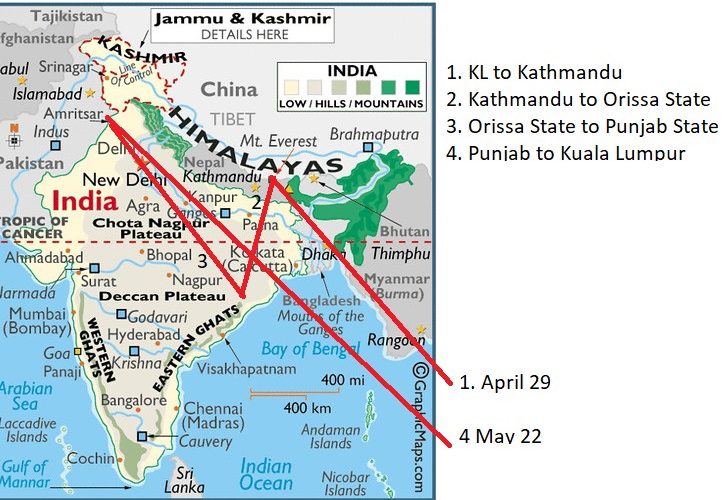
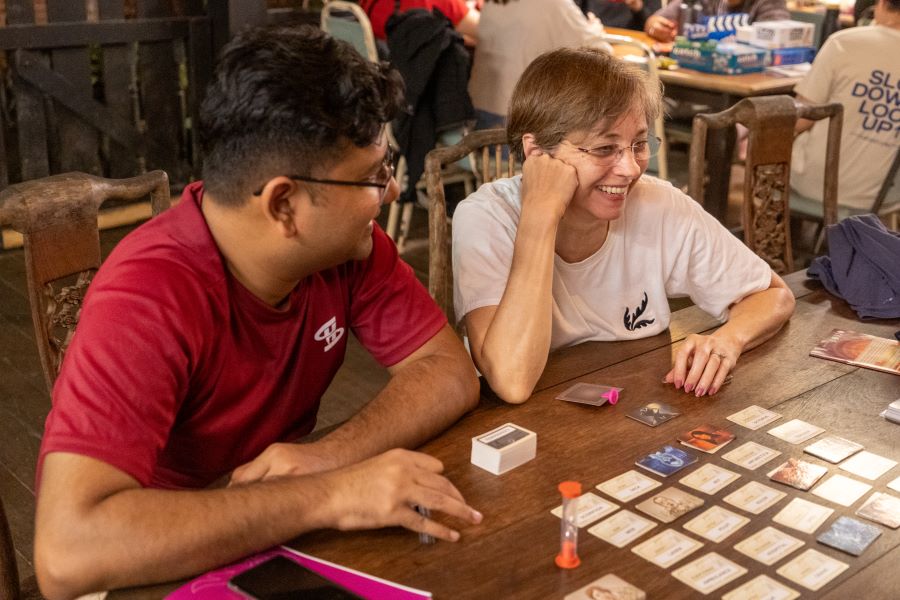
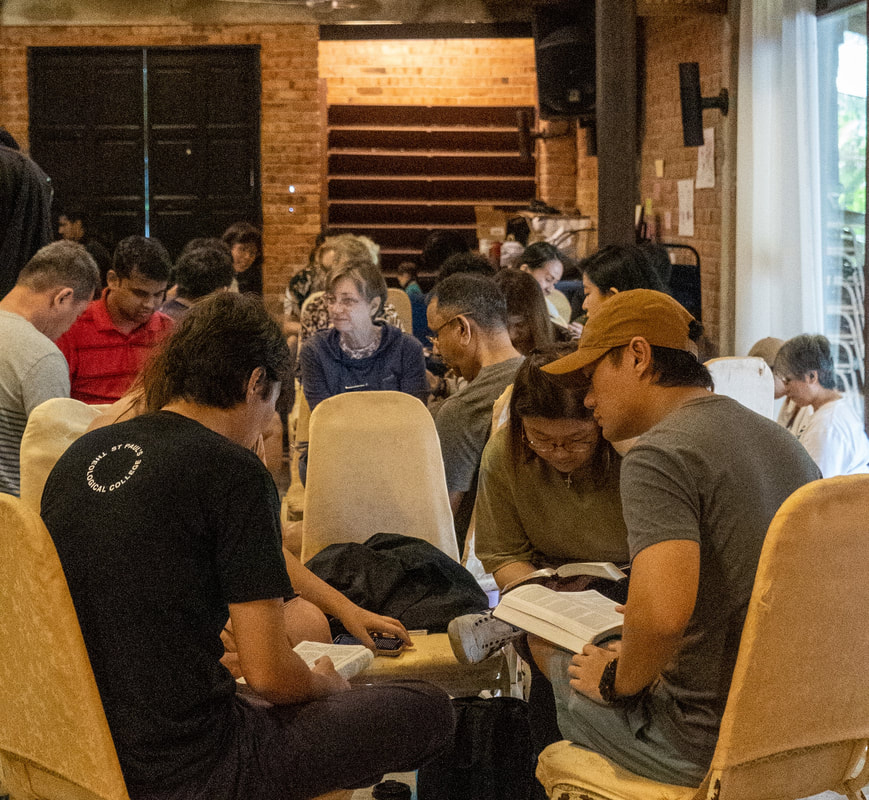
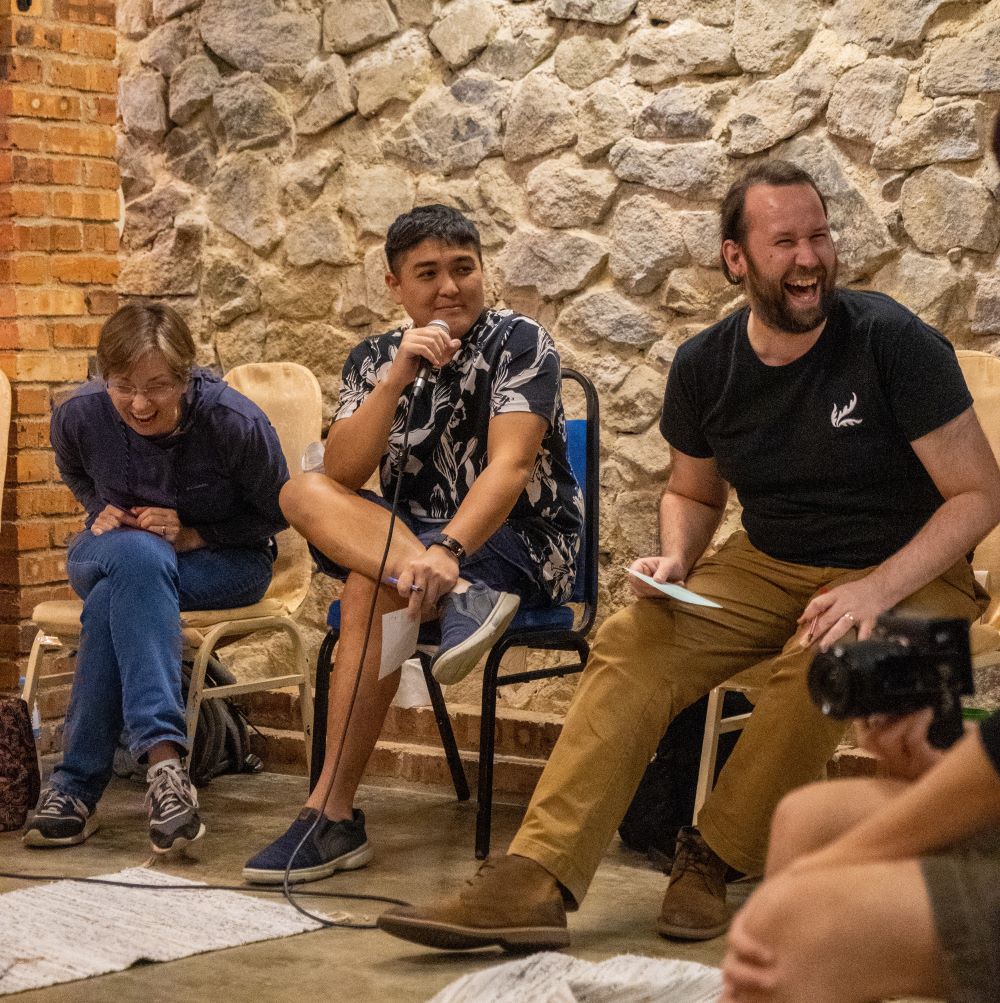
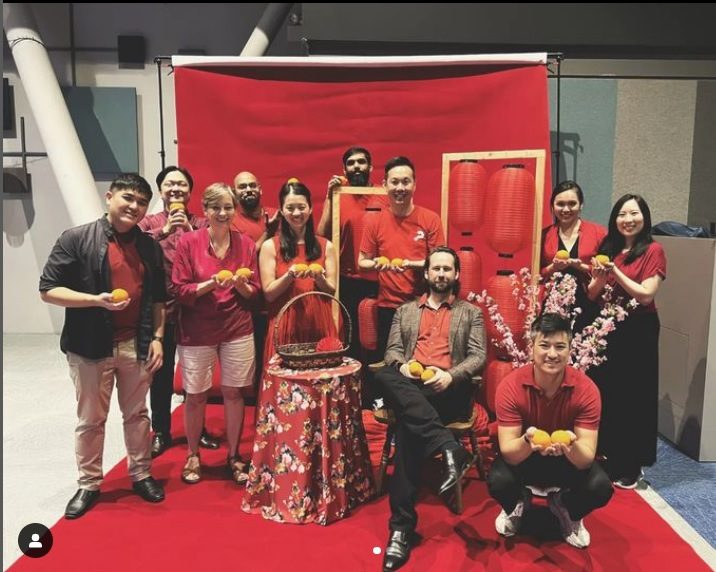

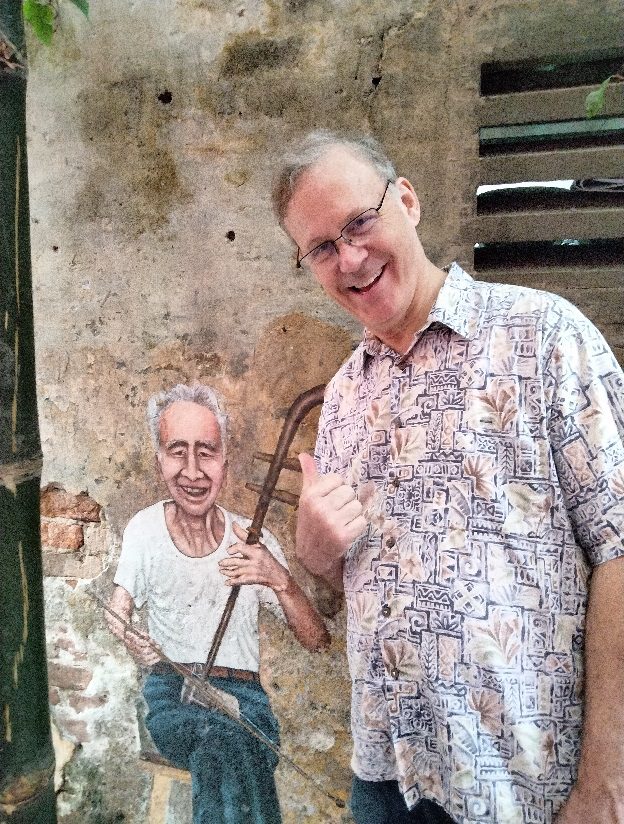
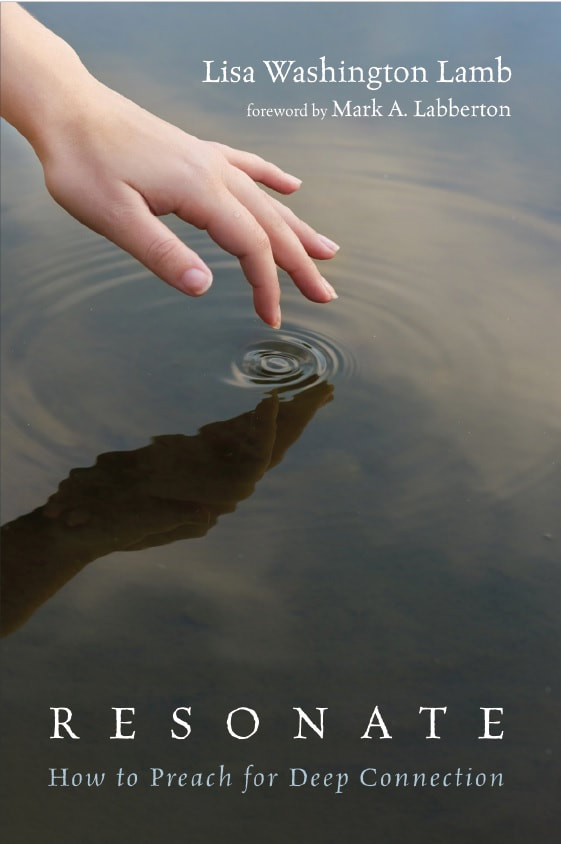
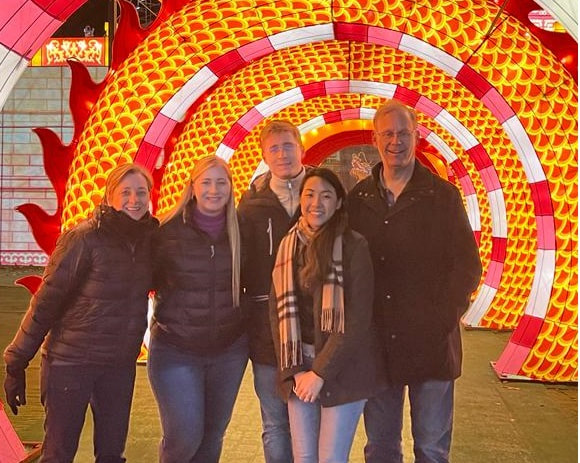
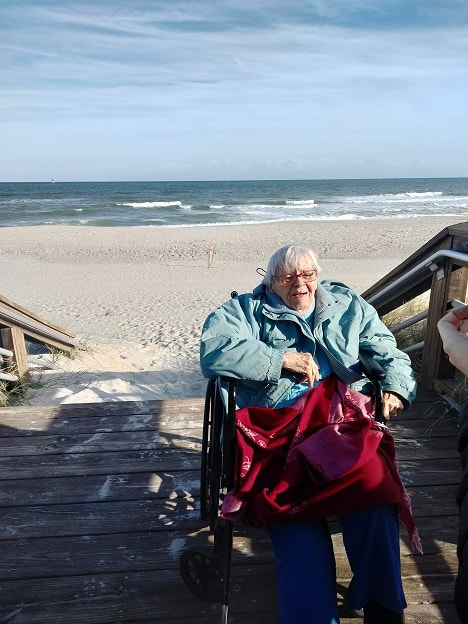

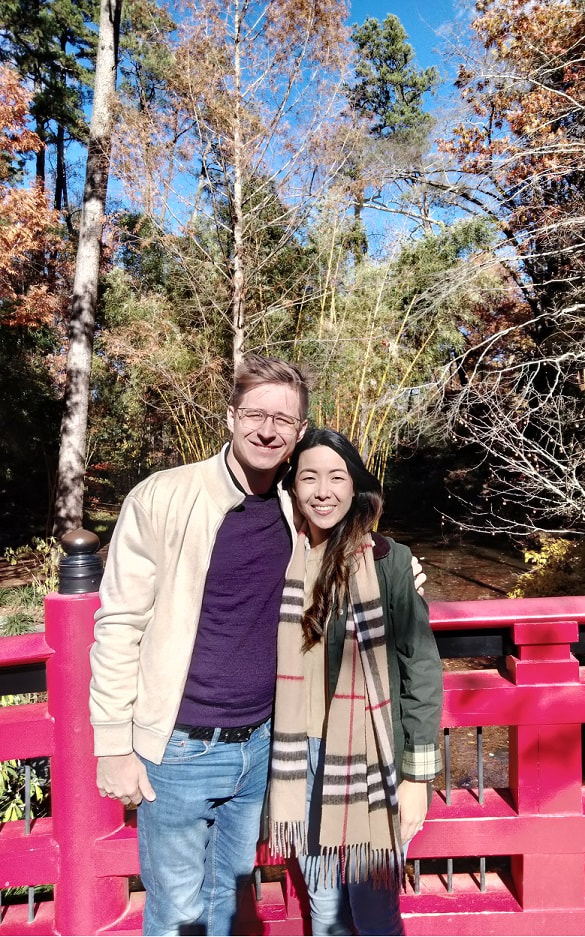
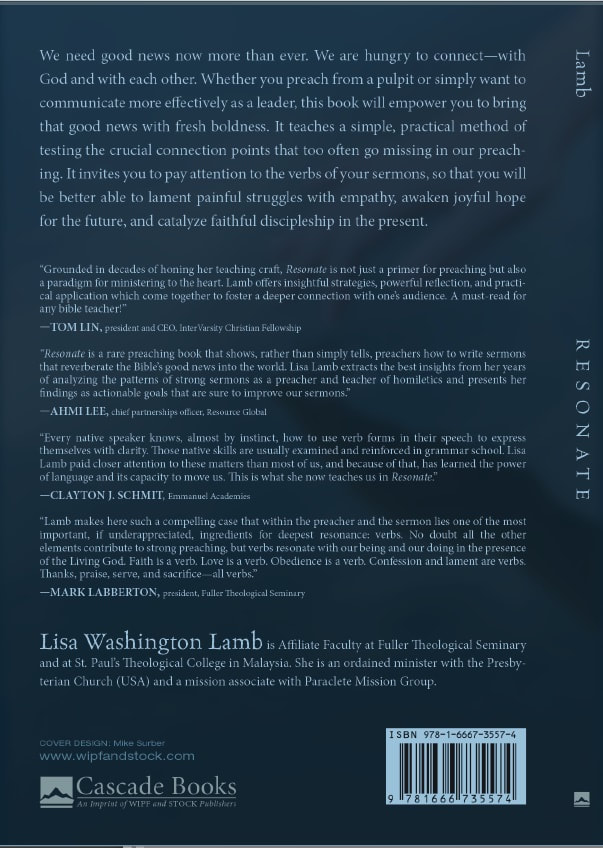
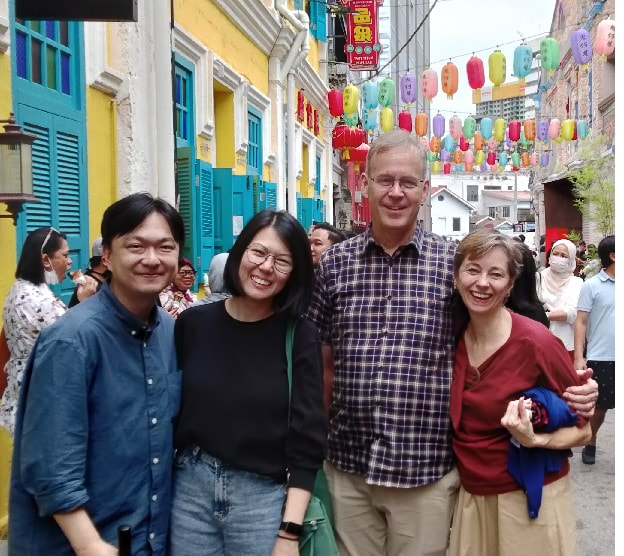
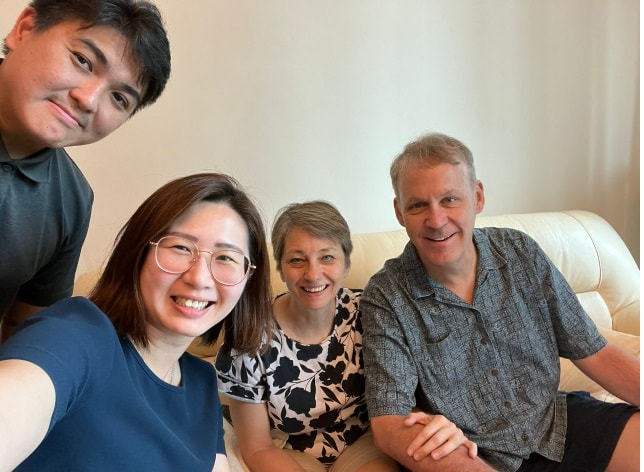
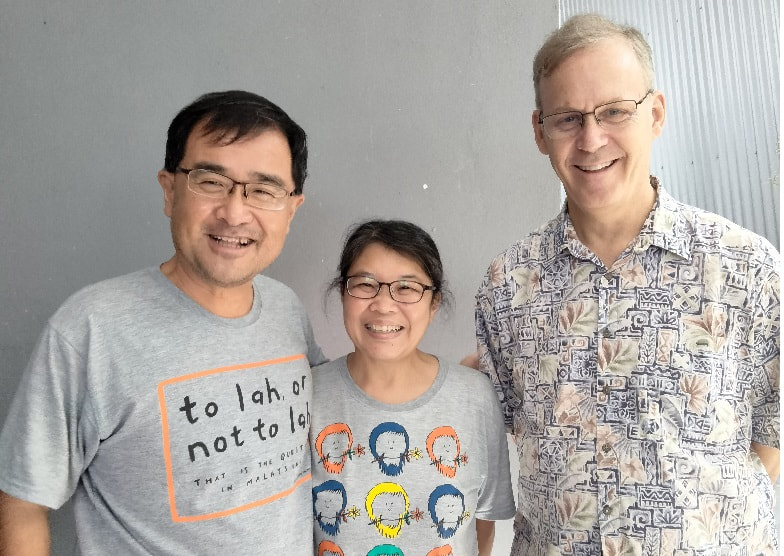
 RSS Feed
RSS Feed